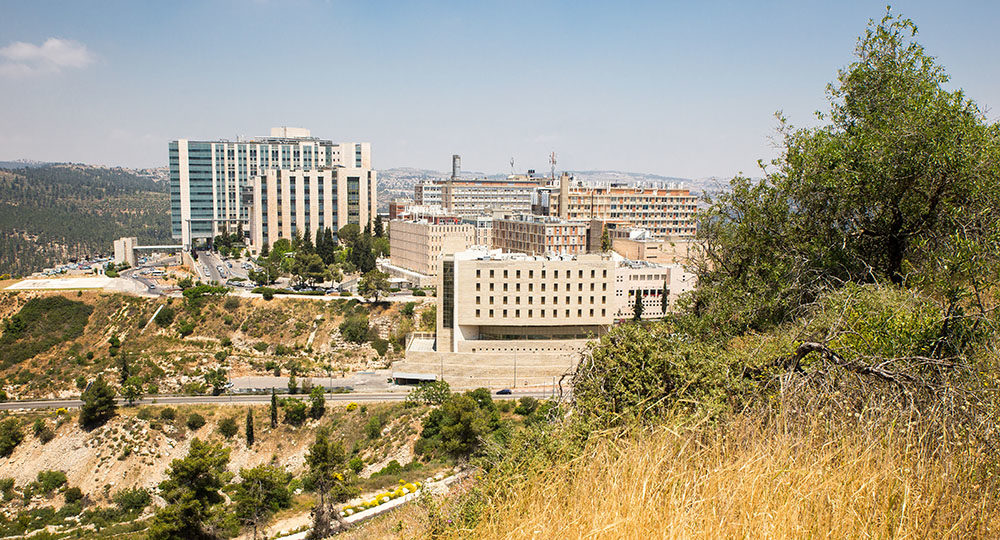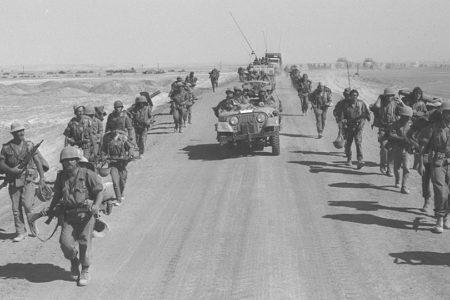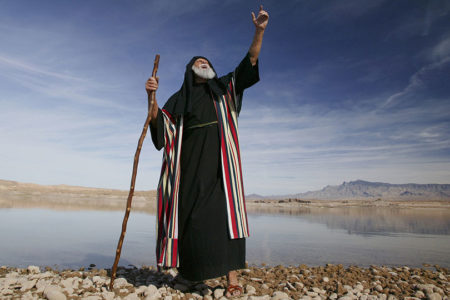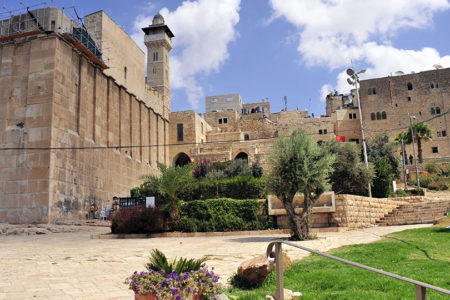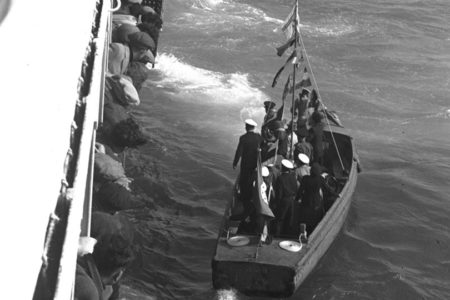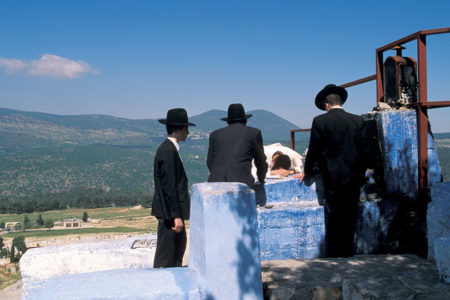The Hadassah Hospital Massacre
Editor’s Note: To read more about Hadassah Hospital and how it changed healthcare in the region, click here.
In November 1947, the UN General Assembly passed a plan to partition what was left of British Mandate Palestine and establish separate Jewish and Arab states, with Jerusalem an international city. Though accepted by the Jewish leadership, the plan was rejected by the Arab League, which immediately began forming volunteer armies to prevent partition. One of the most infamous Arab attacks came five months after the partition plan was passed.
By early 1948, relations between Arabs and Jews were extremely tense. British forces were charged with keeping the peace. But with the end of the British Mandate in sight and the withdrawal of British troops only months away, the task grew more difficult.
Earlier in 1947, Arab leaders called for the bombing of Hadassah Hospital to frighten the Jewish people. By January 1948, in light of their impending departure (May 1948), the British had eased their security. Thus the Jewish enclave had become increasingly cut off from the main sections of Jewish Jerusalem.
The hospital is located on the campus of The Hebrew University on Mount Scopus. The only access to the hospital and university campus was via a narrow, mile-and-a-half-long road that passed through several Arab neighborhoods. The Arabs blocked access to both the hospital and the university, and Arab nationalists infiltrated the neighborhoods and made plans to ambush Jewish travelers who already were in grave danger from Arab snipers. The Hadassah staff was keenly aware of the perils of traveling the road and constantly asked British forces to guarantee their safety to the hospital.
At 9 A.M. on April 13, 1948, a medical convoy was dispatched to take supplies to the hospital. Physicians, medical students, nurses, patients, family members, and university lecturers were traveling that day. At approximately 9:45 A.M., the convoy made its way around a steep curve in the narrow road when the lead vehicle struck a mine planted by Arab terrorists. Immediately, they all came under a barrage of heavy machine-gun fire.
Five vehicles managed to escape; but the armored vehicle, ambulance, and two buses were trapped. Several passengers waved white flags to surrender, but the gunfire did not cease. Gasoline began leaking from one of the vehicles. Soon, Arabs tossed Molotov cocktails onto the fuel. The vehicles exploded, and everything went up in flames. In all, 80 people were murdered, including one British soldier. Dr. Chaim Yassky, director general of Hadassah Medical Organization, lay among the dead.
Journalist Daniel Greenfield wrote, “The barbarity of the attack was then followed by snapshots of the dead, who in some cases had been decapitated, being sold as postcards as yet another reminder that the enemy was operating on a whole other notion of morality.”1
The British never prosecuted anyone. Hadassah allegedly has proof of British collaboration with the Arabs to allow the attack, which senselessly massacred a group of people vital to the region’s health. Hadassah Hospital was the area’s most modern facility, as well as the first teaching hospital. And it served both Jews and Arabs.
Sixty-five years later, not much has changed. Radical Islamists operate in exactly the same fashion as the terrorists on the road to Hadassah. Their actions not only harm innocent Jews but hurt their own people as well.
Hamas, which controls the Gaza Strip, thinks nothing of firing thousands of rockets into southern Israel in an attempt to kill as many innocent Israelis as possible. Ironically, Hamas targets the Israeli power sta-tion that is the main source of electricity for its own people.
Each year on the 4th of Nissan, the date on the Jewish calendar of the Hadassah massacre, a caravan drives the mile-and-a-half-long road as a reminder of the brutal killings. This year marks the 65th anniversary of those deaths. Yet Islamists present an almost daily reminder of the Hadassah Hospital massacre as they continue their senseless acts of terrorism.
ENDNOTE
- Daniel Greenfield, “Remembering the 65th Anniversary of the Hadassah Medical Convoy Massacre,” Frontpage Mag, March 15, 2013 <frontpagemag.com/2013/dgreenfield/remembering-the-65th-anniversary-of-the-hadassah-medical-convoy-massacre>.
